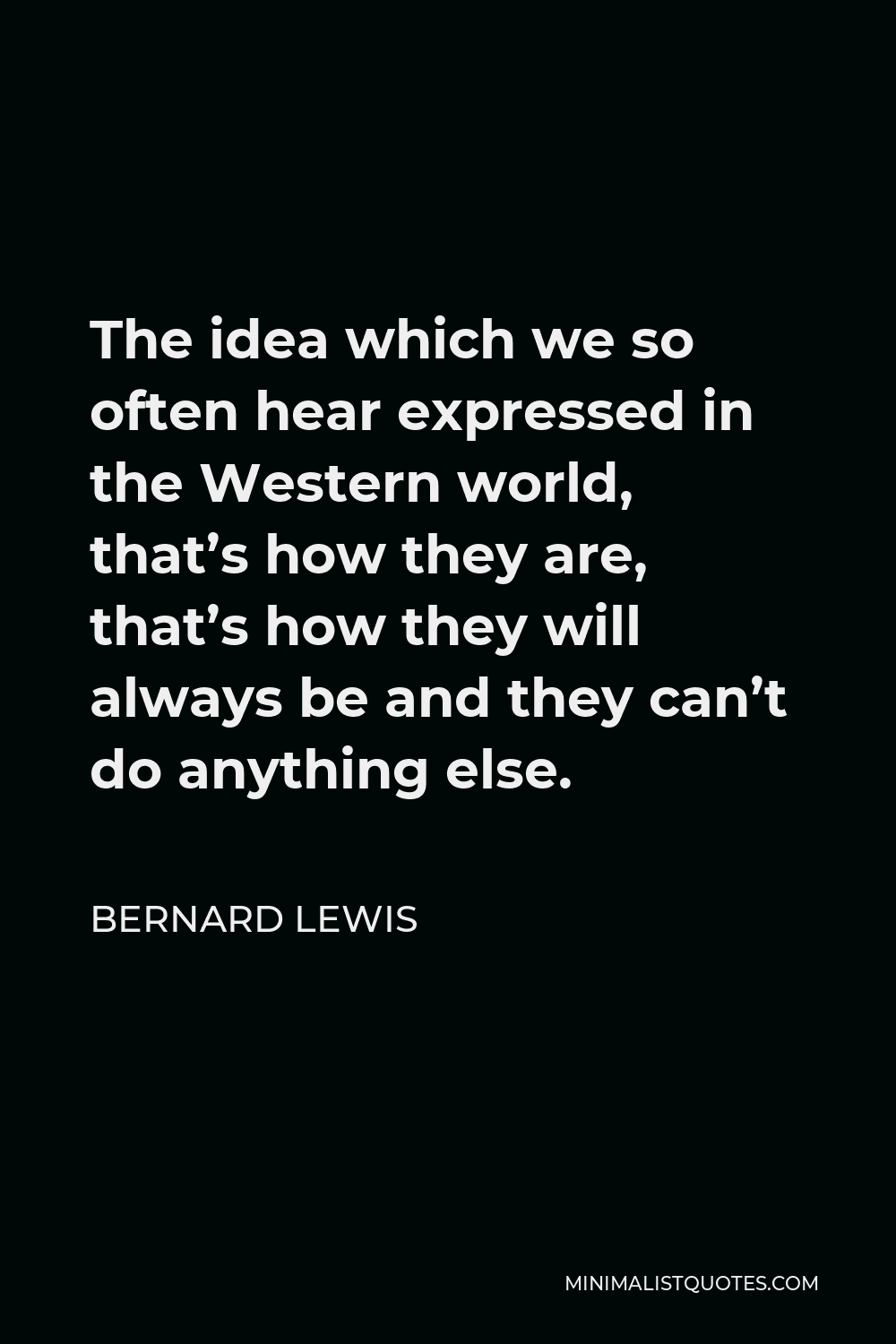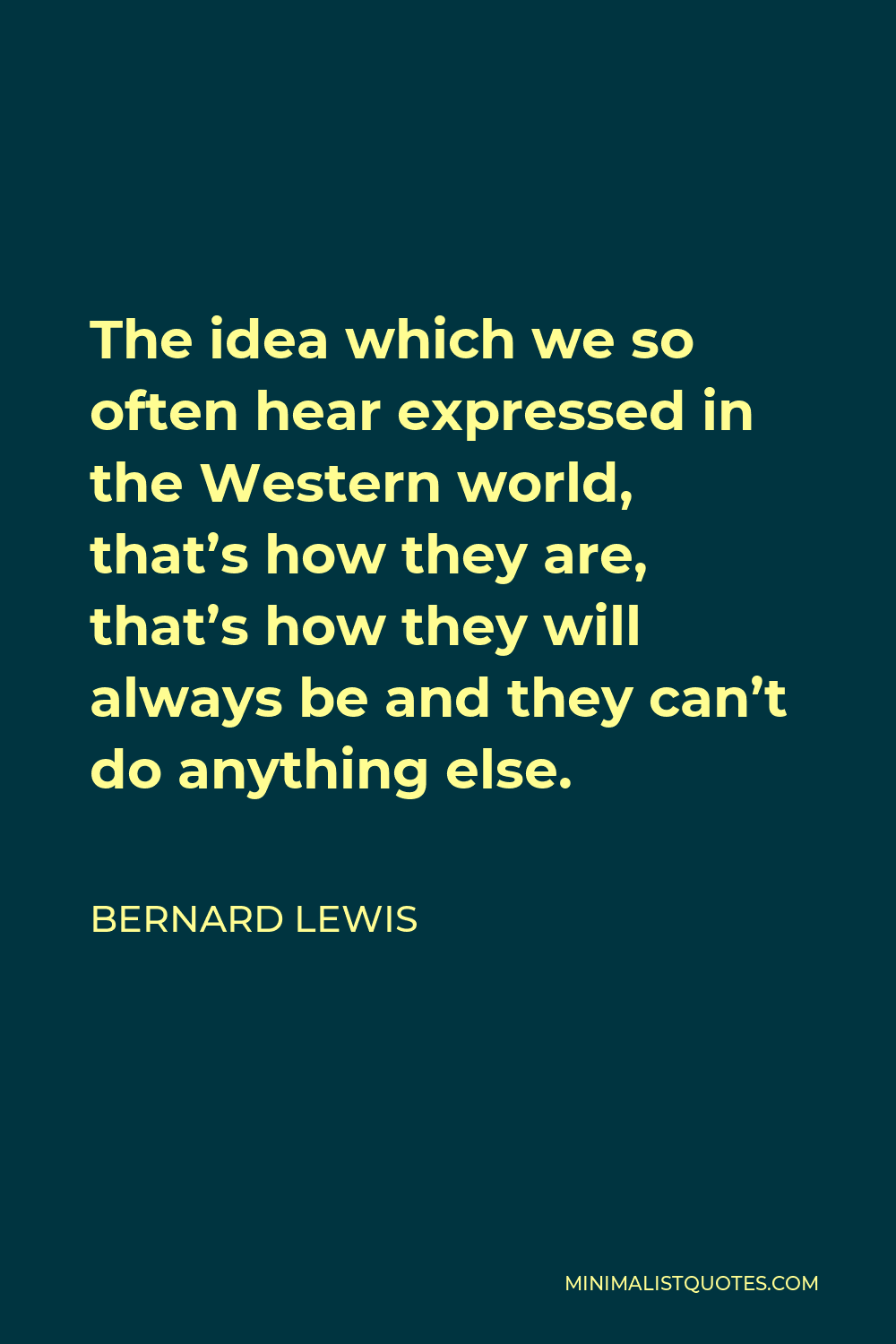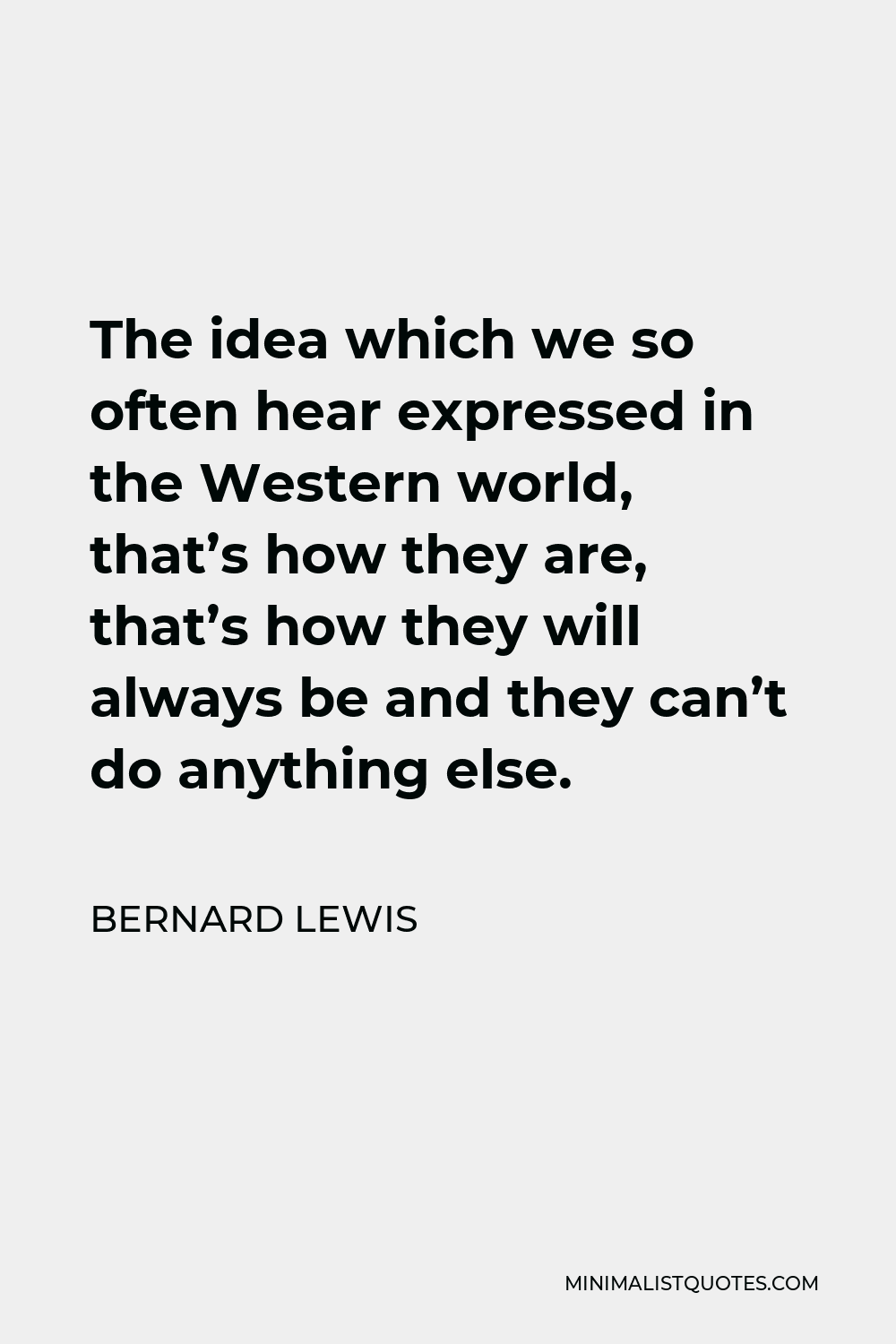From the lifetime of its founder, Islam was the state, and the identity of religion and government is indelibly stamped on the memories and awareness of the faithful from their own sacred writings, history, and experience.
BERNARD LEWISThe idea which we so often hear expressed in the Western world, that’s how they are, that’s how they will always be and they can’t do anything else.
More Bernard Lewis Quotes
-





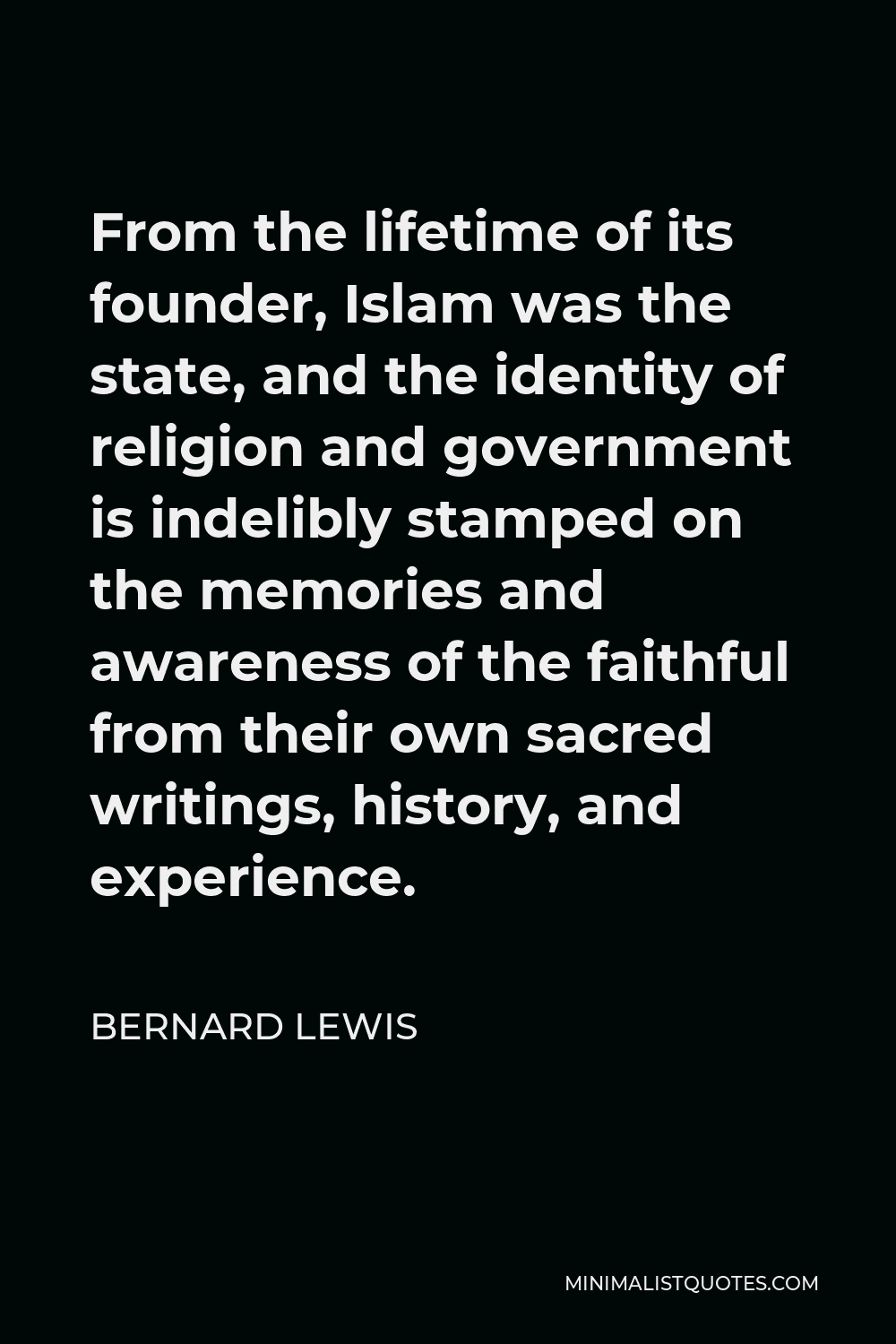
-





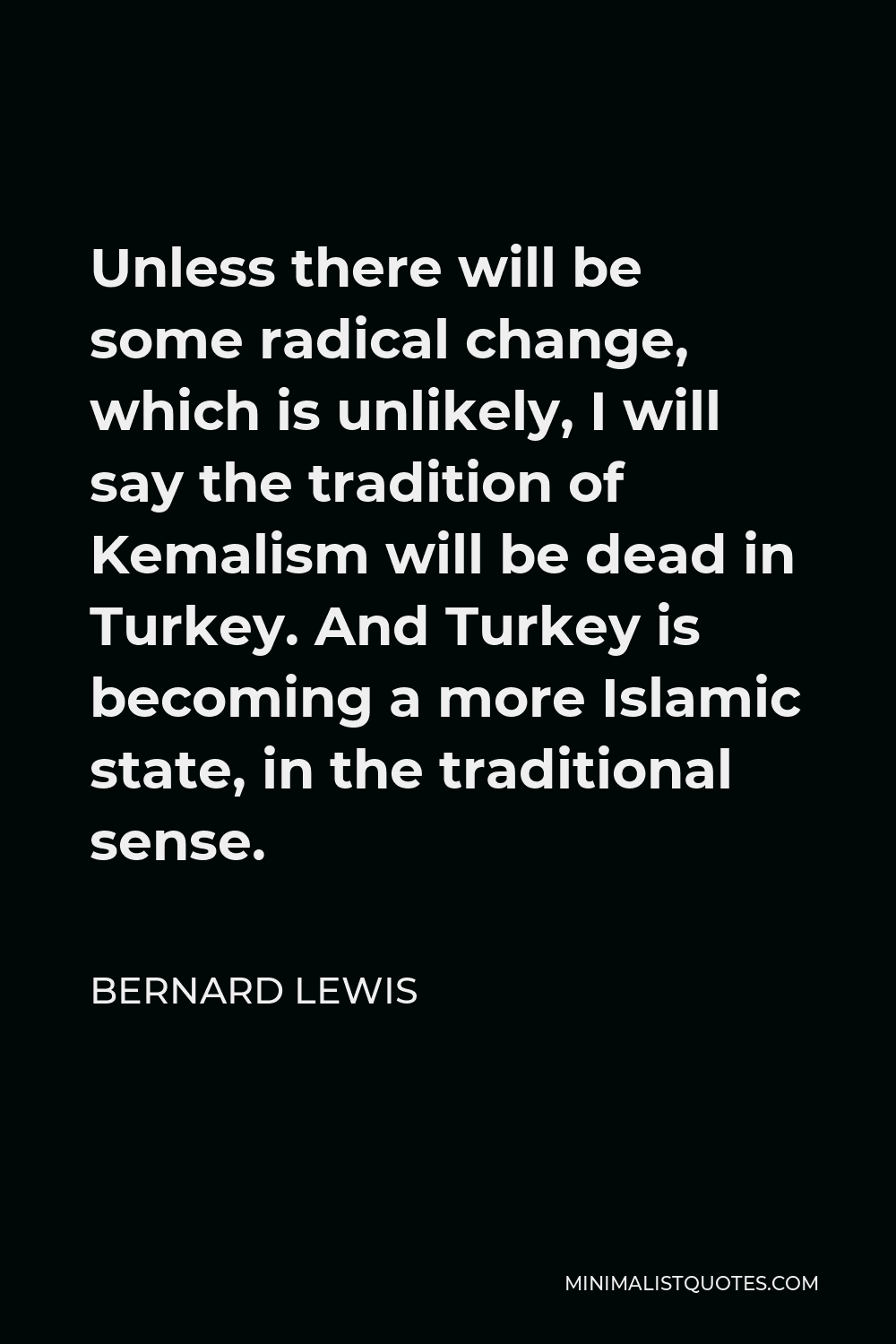
Unless there will be some radical change, which is unlikely, I will say the tradition of Kemalism will be dead in Turkey. And Turkey is becoming a more Islamic state, in the traditional sense.
BERNARD LEWIS -





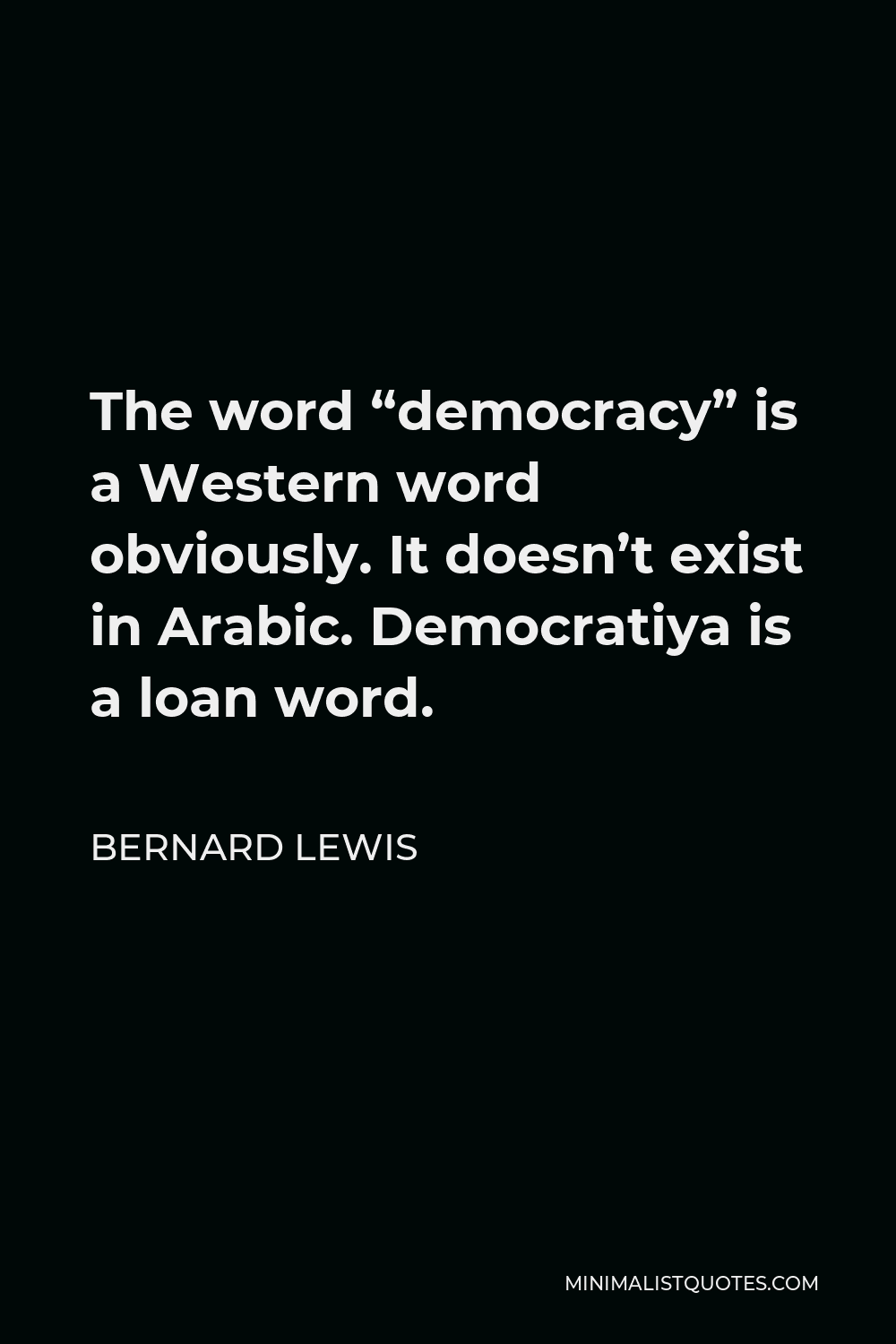
The word “democracy” is a Western word obviously. It doesn’t exist in Arabic. Democratiya is a loan word.
BERNARD LEWIS -





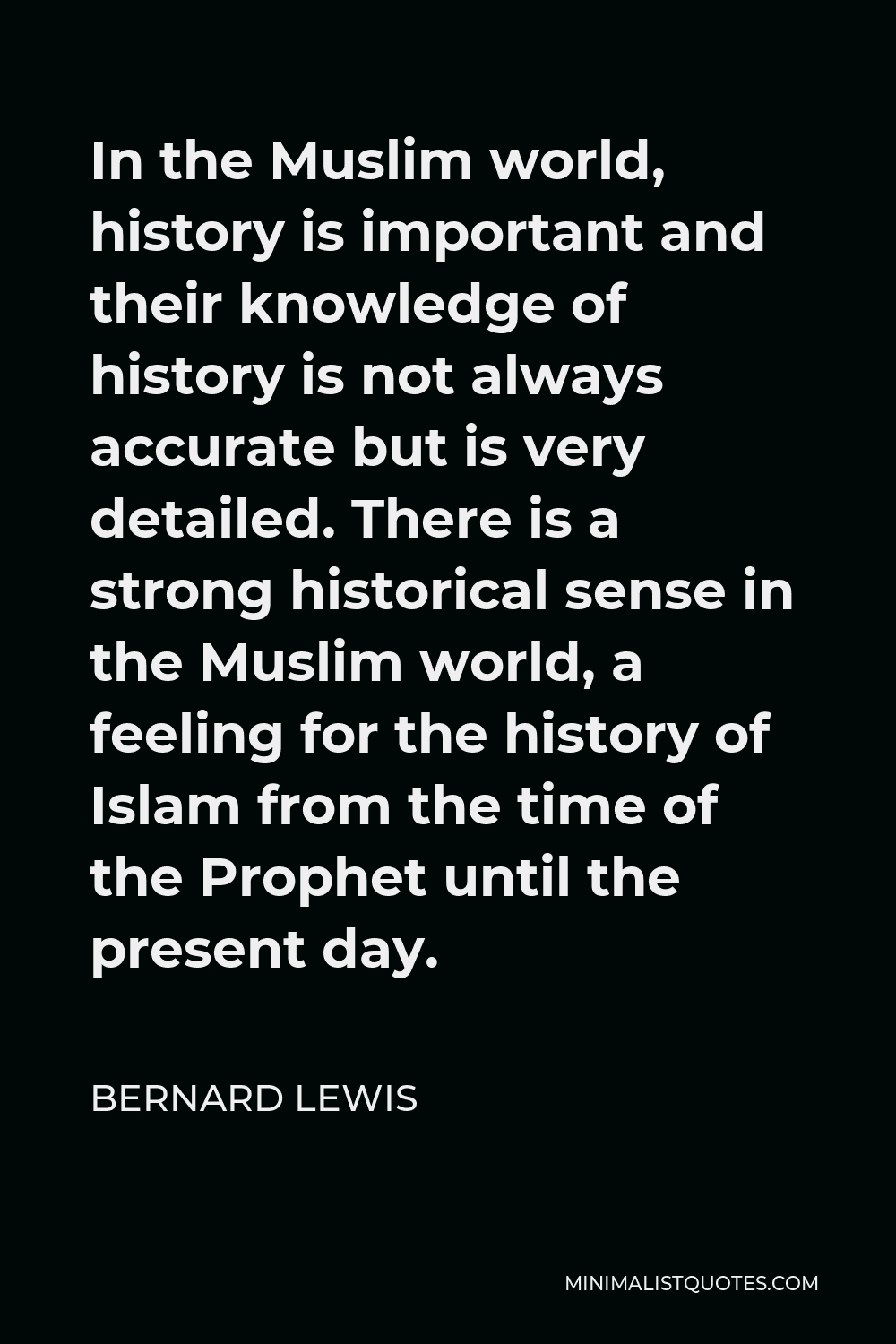
In the Muslim world, history is important and their knowledge of history is not always accurate but is very detailed. There is a strong historical sense in the Muslim world, a feeling for the history of Islam from the time of the Prophet until the present day.
BERNARD LEWIS -





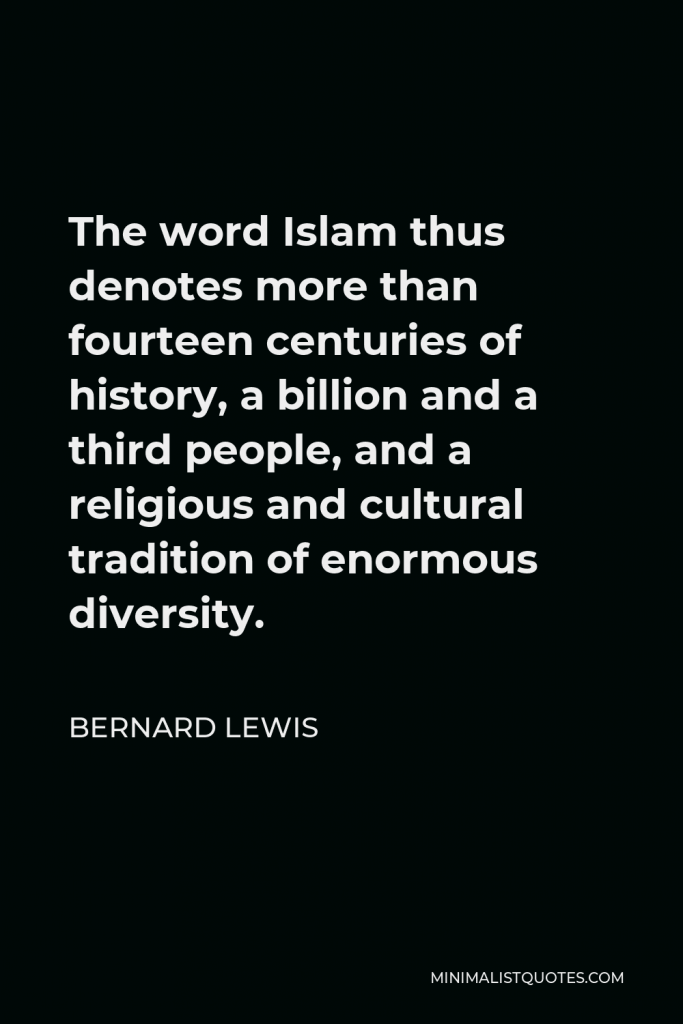

The word Islam thus denotes more than fourteen centuries of history, a billion and a third people, and a religious and cultural tradition of enormous diversity.
BERNARD LEWIS -





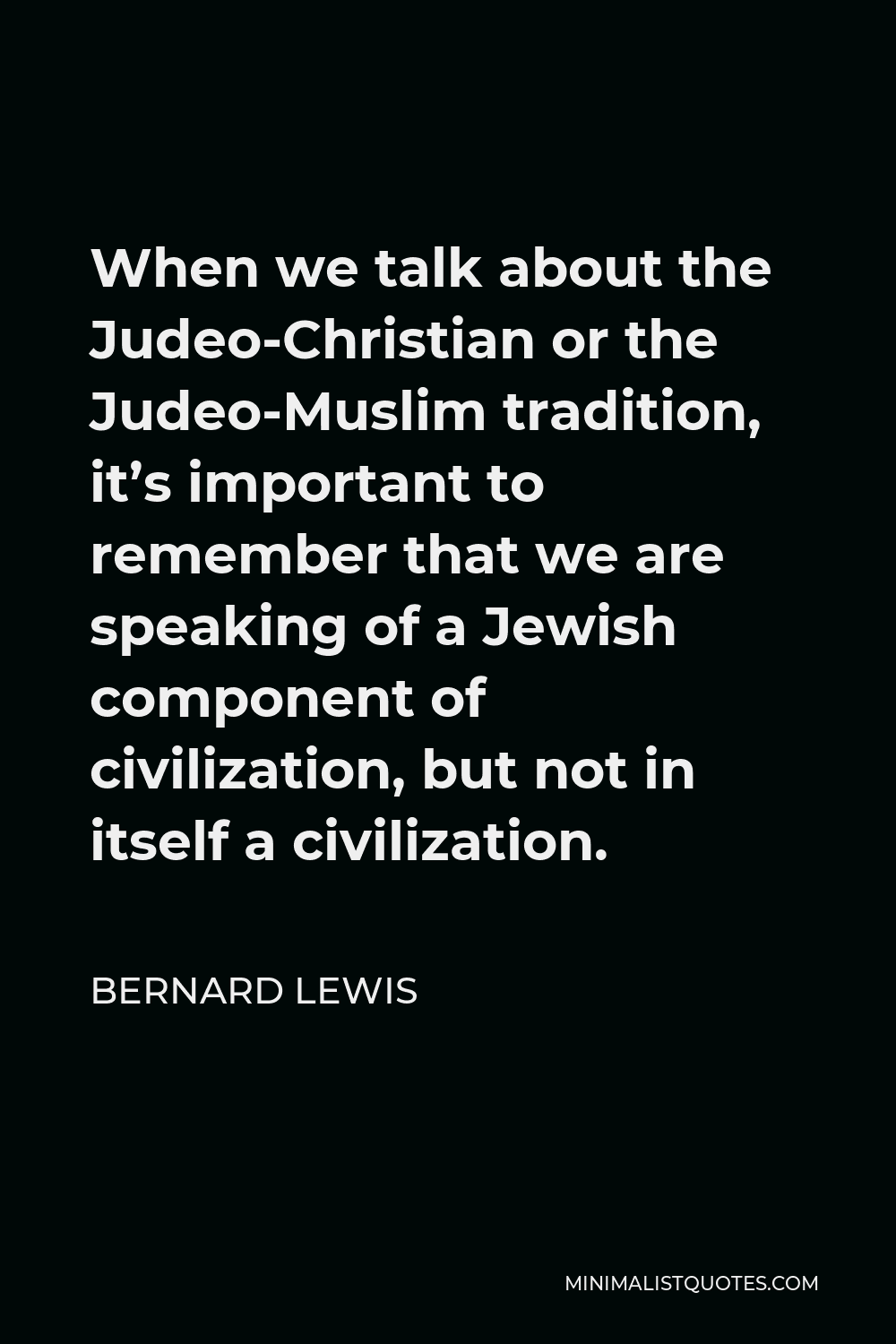
When we talk about the Judeo-Christian or the Judeo-Muslim tradition, it’s important to remember that we are speaking of a Jewish component of civilization, but not in itself a civilization.
BERNARD LEWIS -





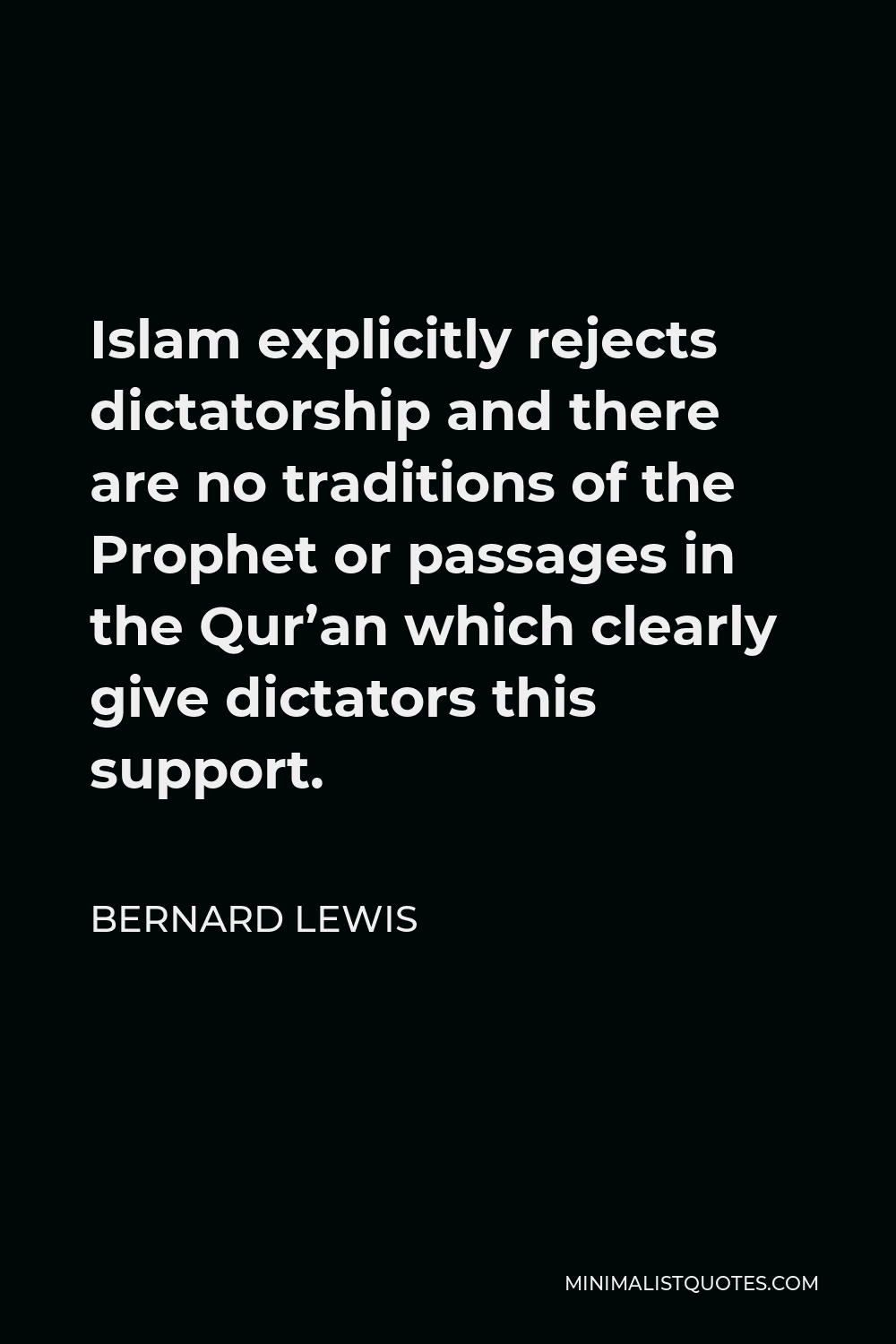
Islam explicitly rejects dictatorship and there are no traditions of the Prophet or passages in the Qur’an which clearly give dictators this support.
BERNARD LEWIS -





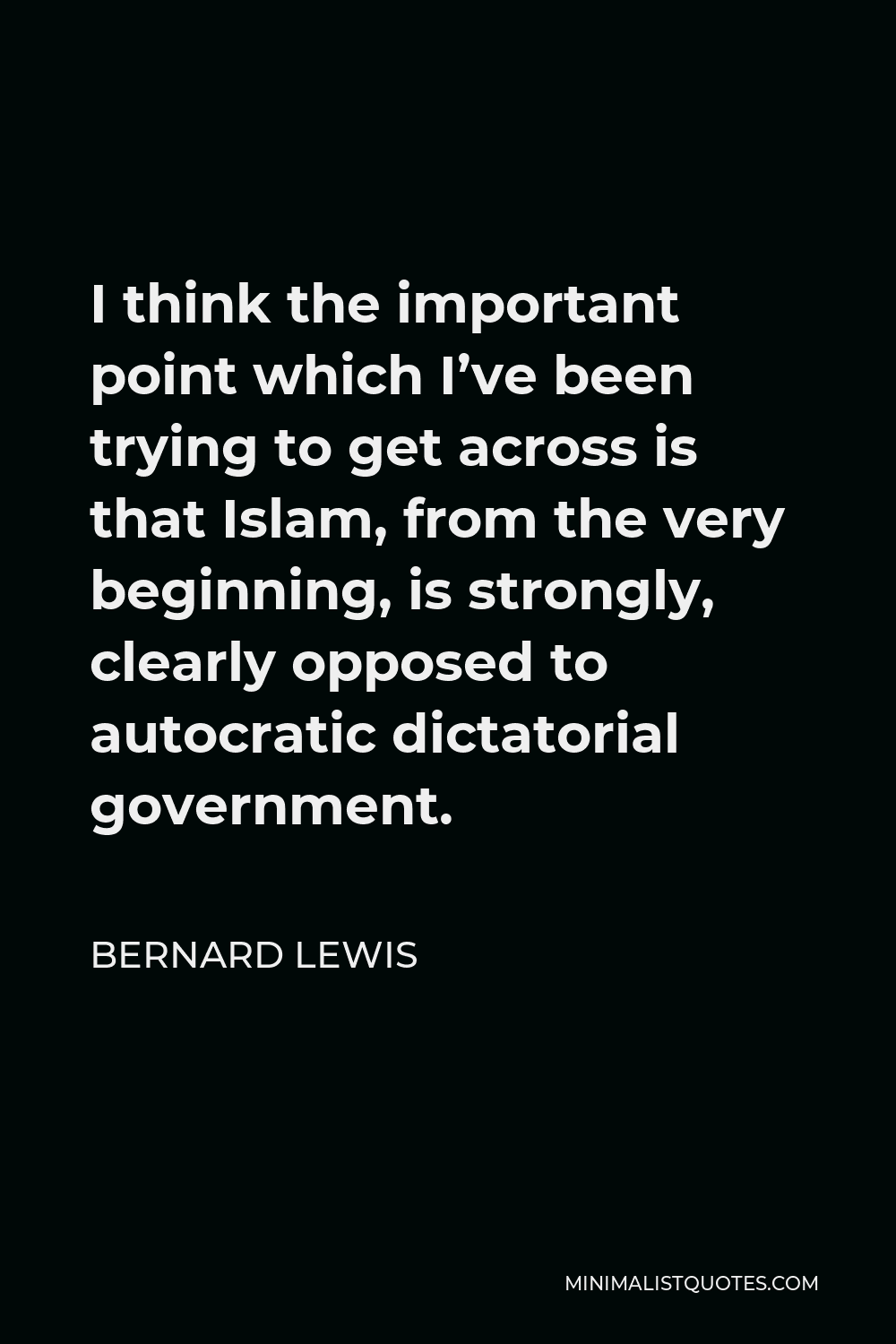
I think the important point which I’ve been trying to get across is that Islam, from the very beginning, is strongly, clearly opposed to autocratic dictatorial government.
BERNARD LEWIS -





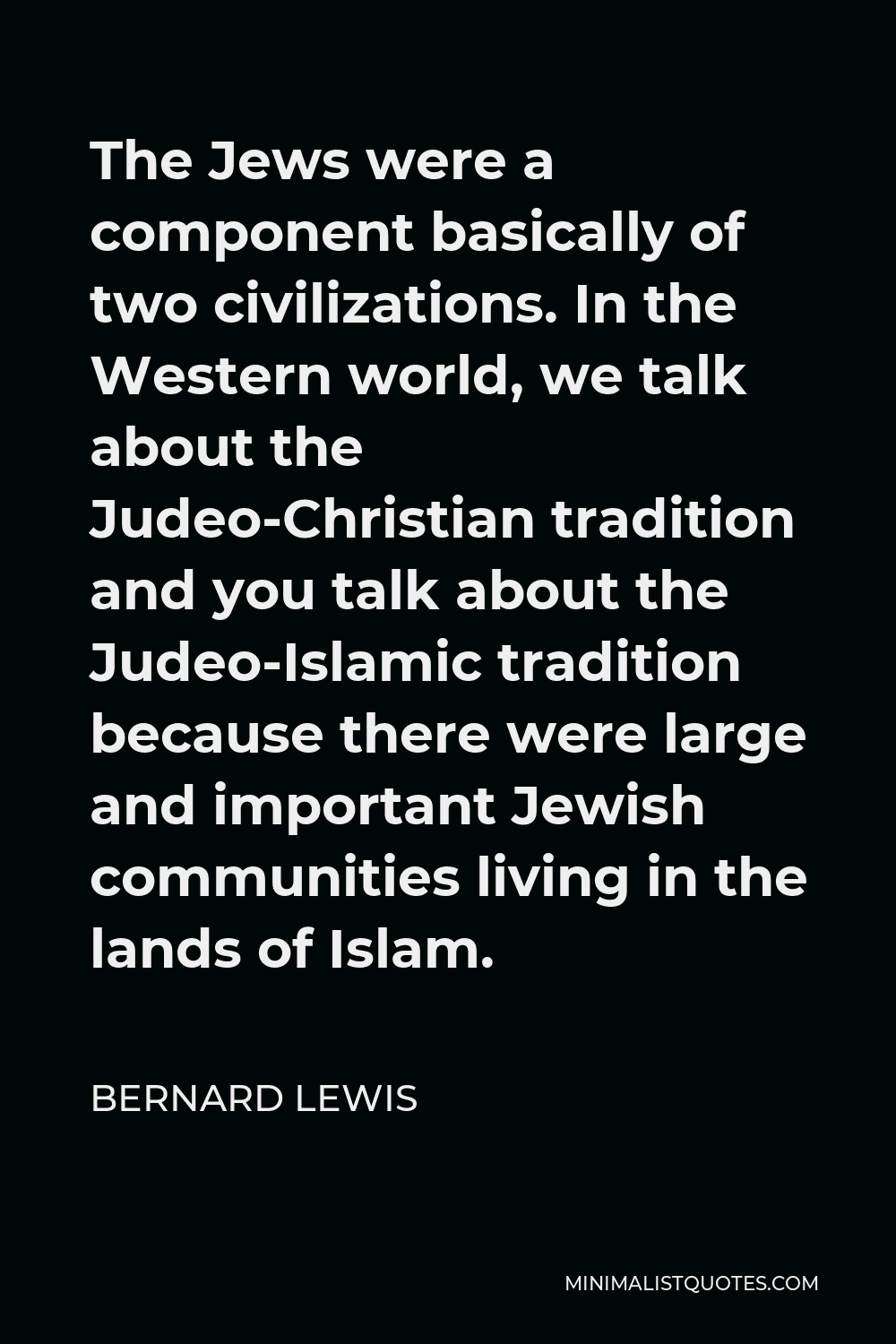
The Jews were a component basically of two civilizations. In the Western world, we talk about the Judeo-Christian tradition and you talk about the Judeo-Islamic tradition because there were large and important Jewish communities living in the lands of Islam.
BERNARD LEWIS -





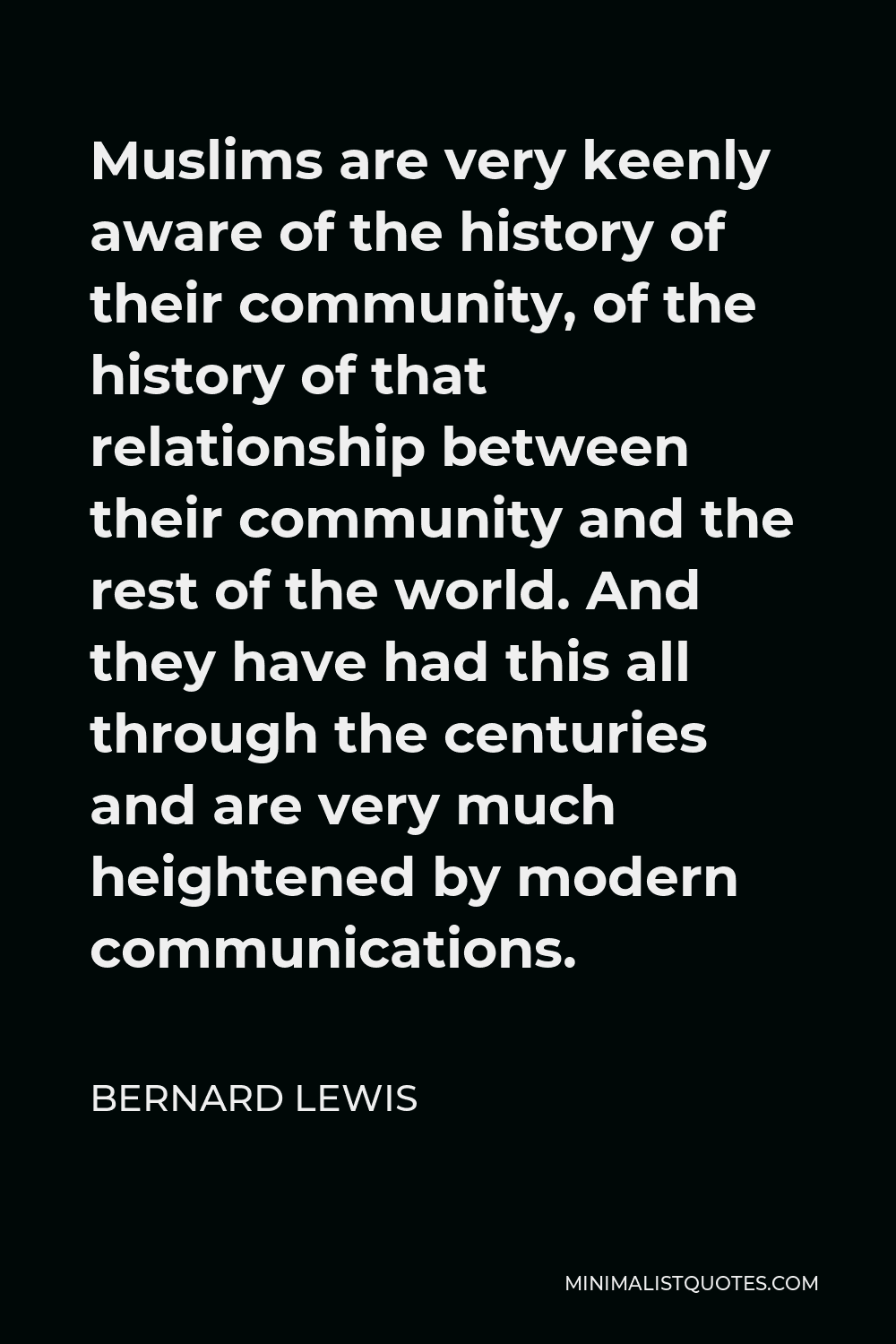
Muslims are very keenly aware of the history of their community, of the history of that relationship between their community and the rest of the world. And they have had this all through the centuries and are very much heightened by modern communications.
BERNARD LEWIS -





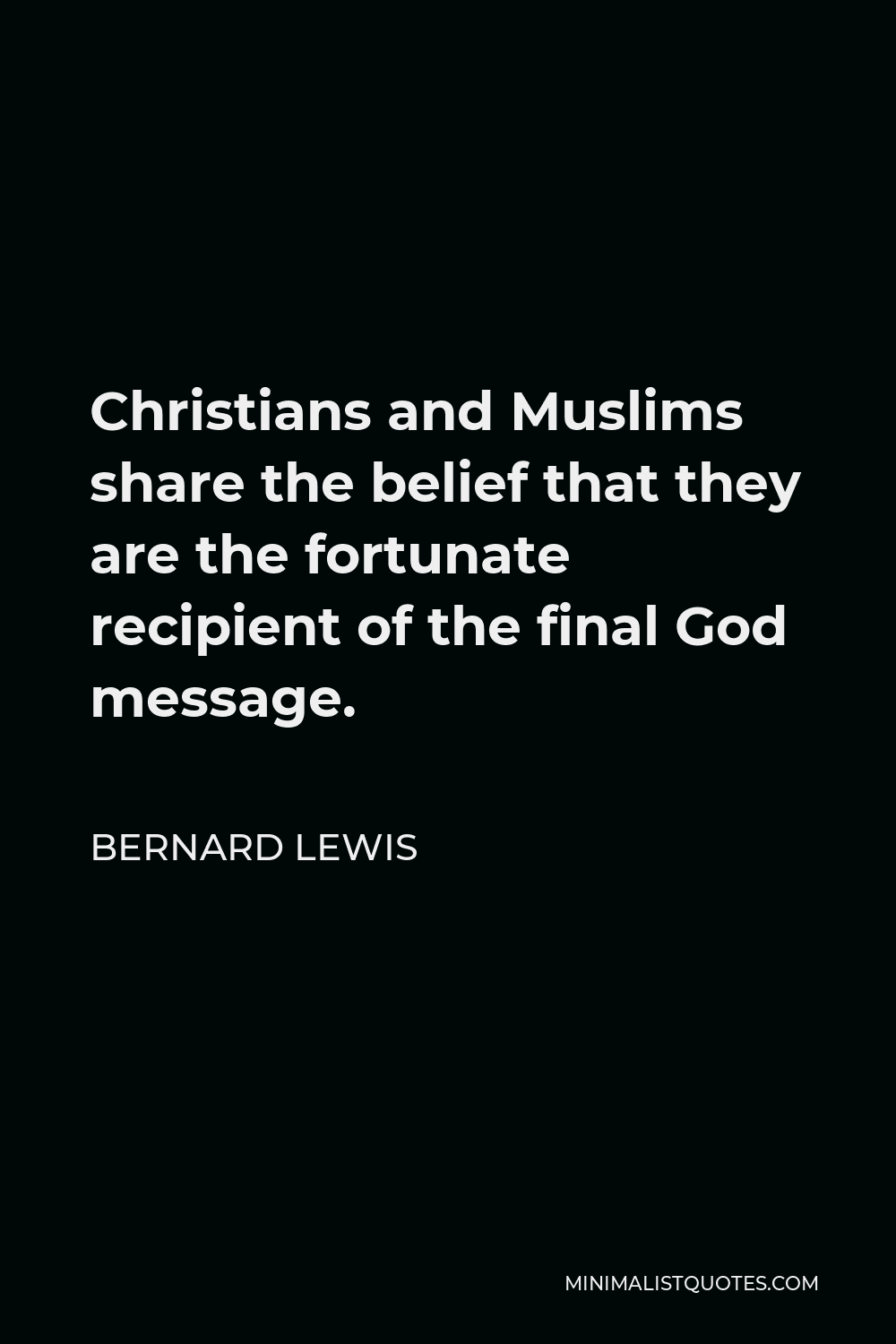
Christians and Muslims share the belief that they are the fortunate recipient of the final God message.
BERNARD LEWIS -





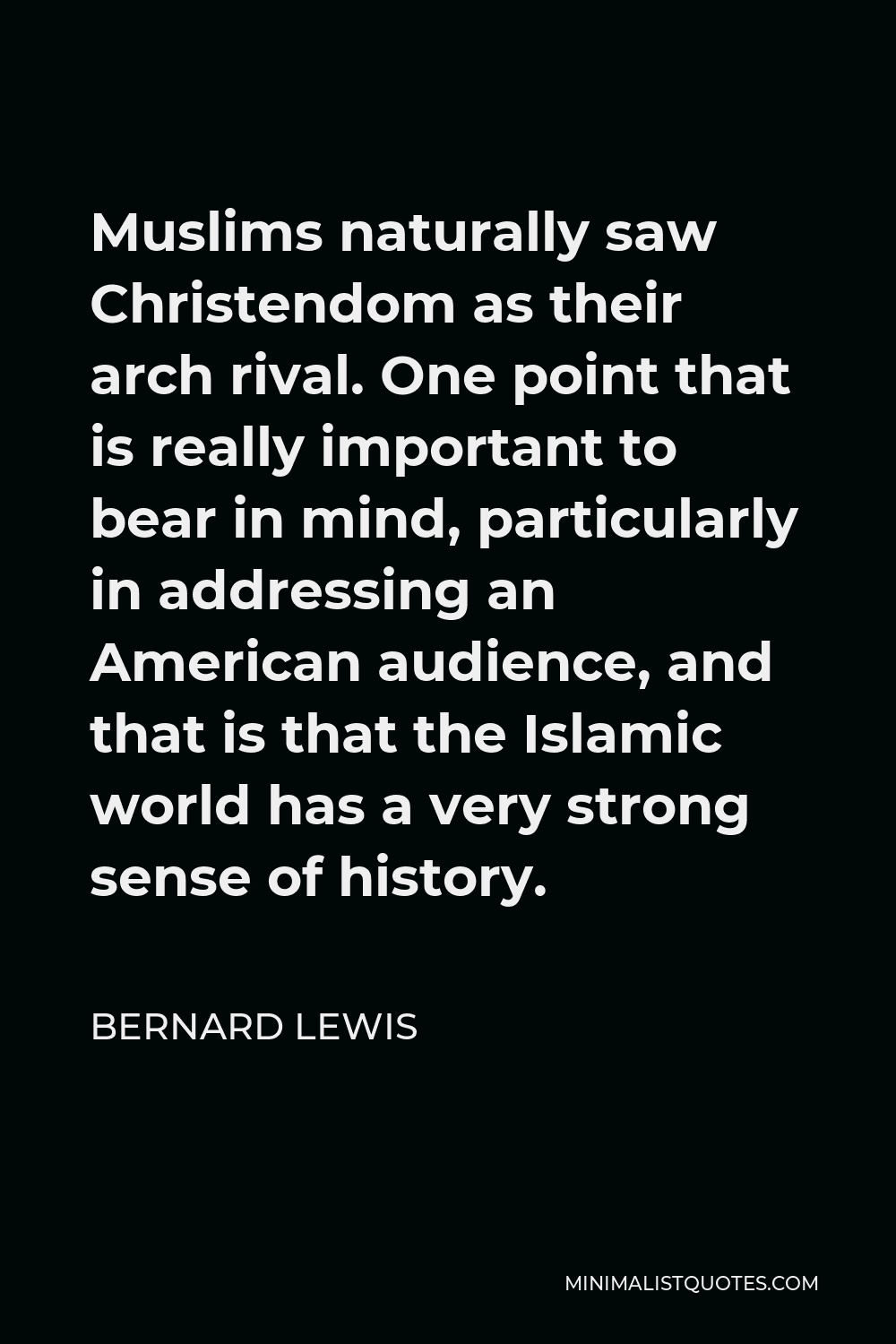
Muslims naturally saw Christendom as their arch rival. One point that is really important to bear in mind, particularly in addressing an American audience, and that is that the Islamic world has a very strong sense of history.
BERNARD LEWIS -





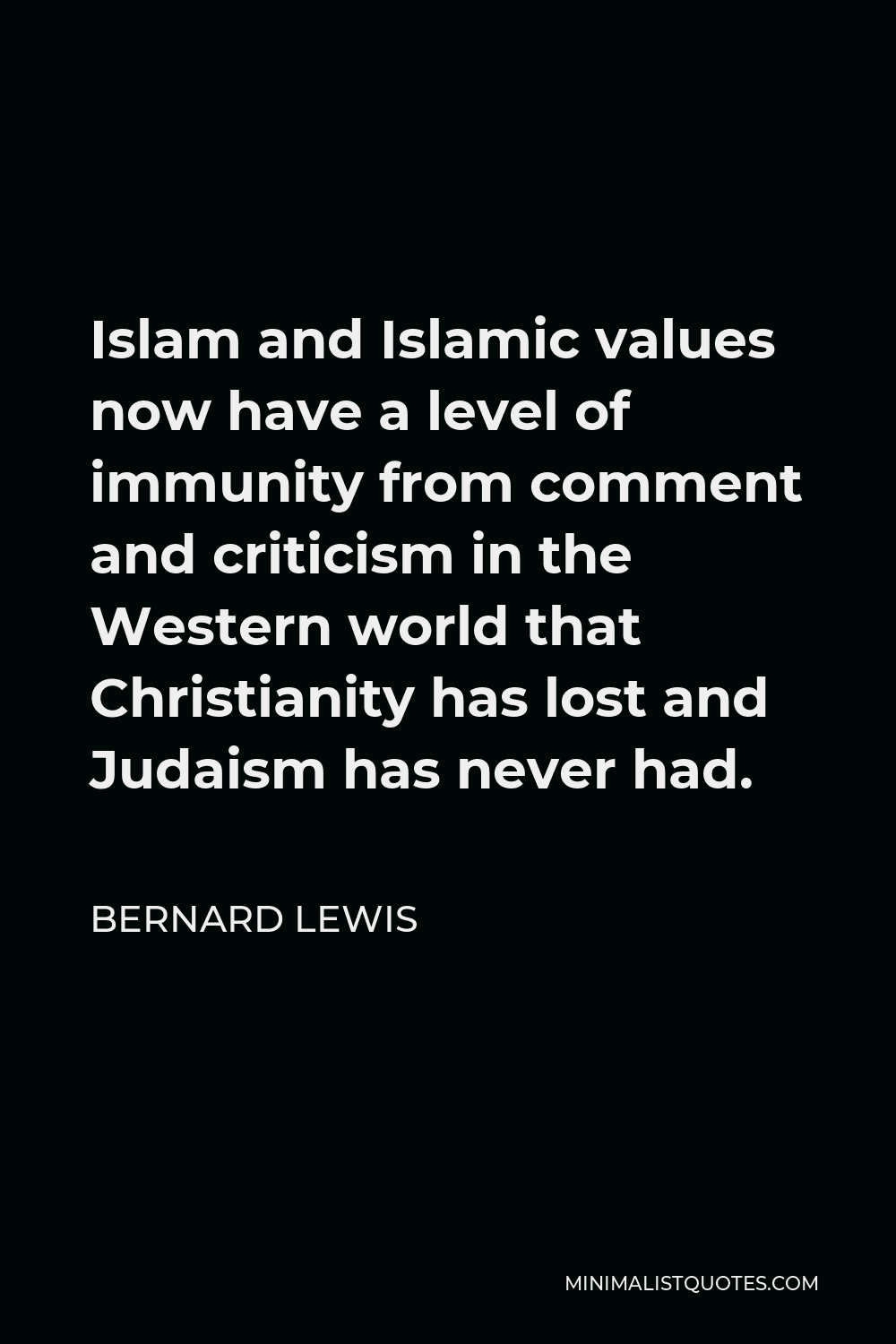
Islam and Islamic values now have a level of immunity from comment and criticism in the Western world that Christianity has lost and Judaism has never had.
BERNARD LEWIS -





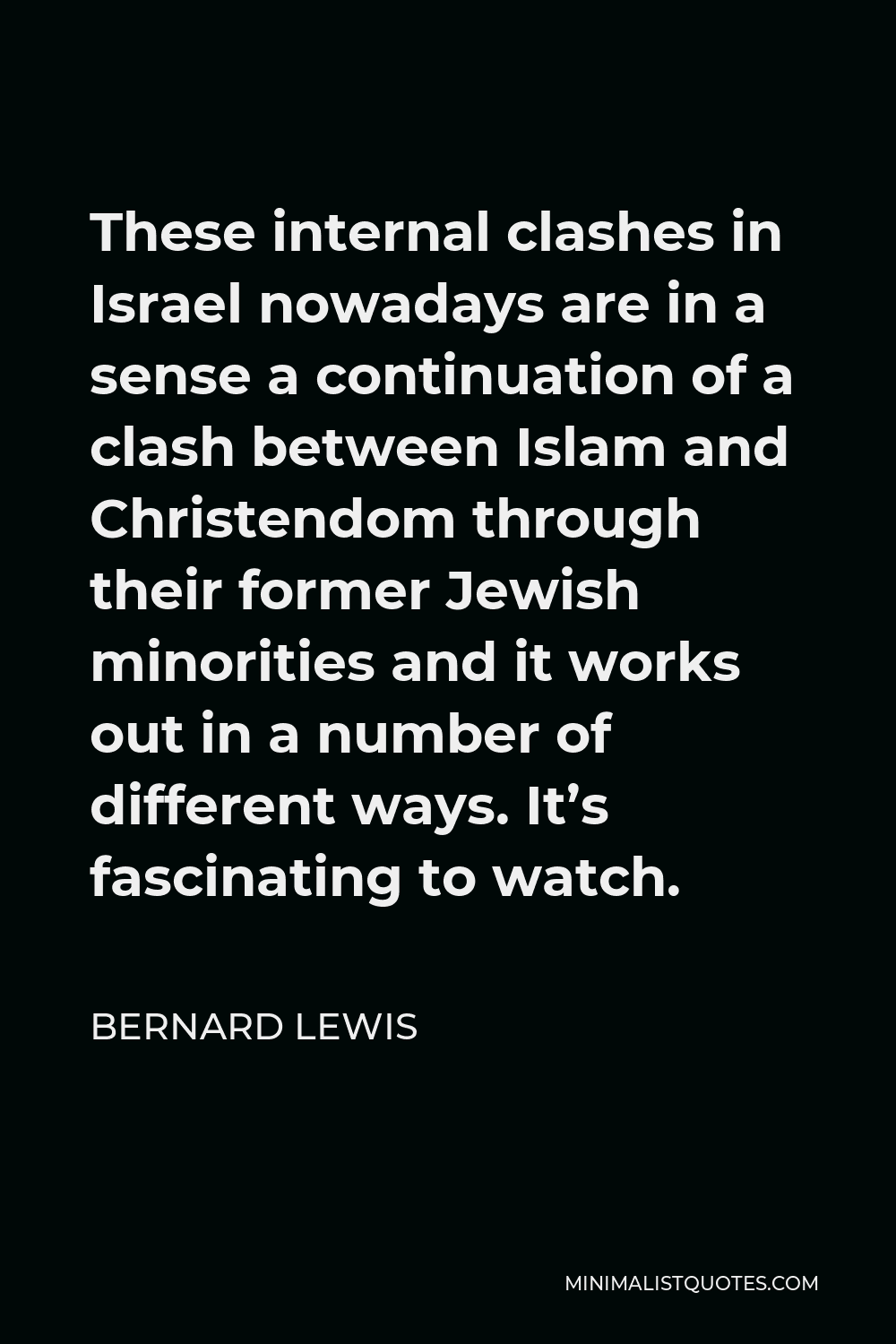
These internal clashes in Israel nowadays are in a sense a continuation of a clash between Islam and Christendom through their former Jewish minorities and it works out in a number of different ways. It’s fascinating to watch.
BERNARD LEWIS -





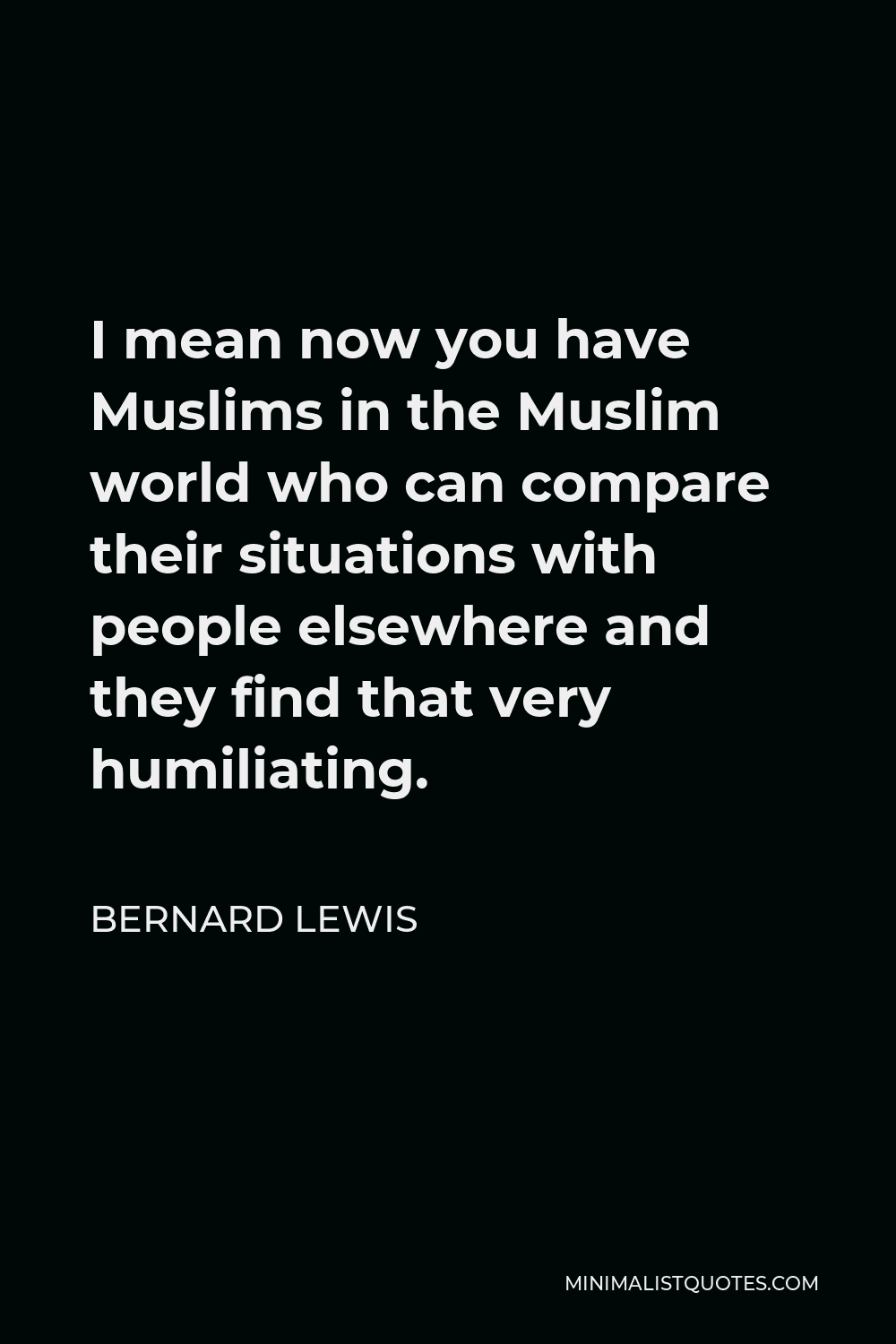
I mean now you have Muslims in the Muslim world who can compare their situations with people elsewhere and they find that very humiliating.
BERNARD LEWIS -





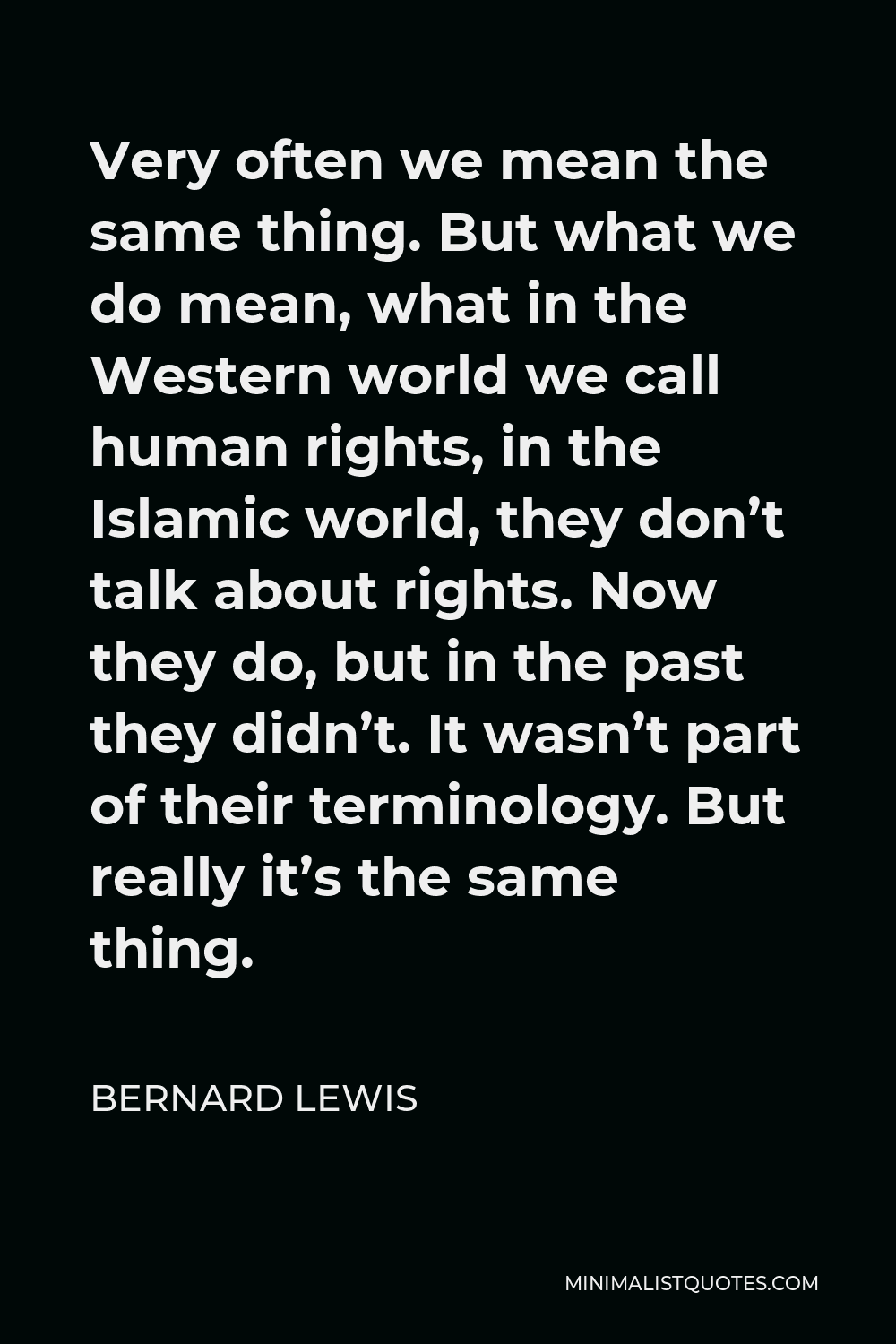
Very often we mean the same thing. But what we do mean, what in the Western world we call human rights, in the Islamic world, they don’t talk about rights. Now they do, but in the past they didn’t. It wasn’t part of their terminology. But really it’s the same thing.
BERNARD LEWIS
